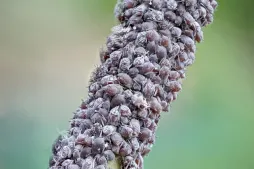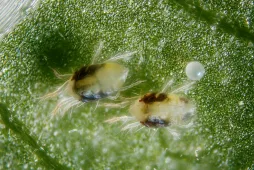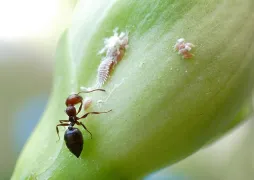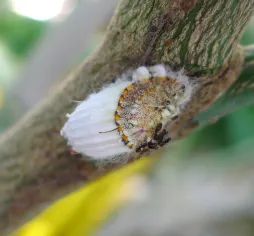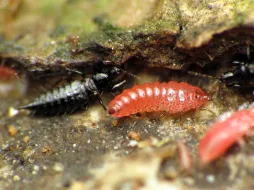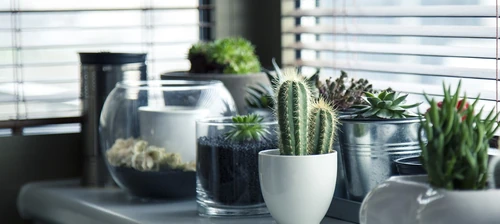Aglaonema simplex, the single-stemmed aglaonema
For NASA, SIMPLEx is a solar system exploration program. But you don't have to go to Mars or Jupiter to find an Aglaonema simplex. This plant of the Araceae family grows in the forests of Asia, in Singapore, Malaysia and Cambodia.
How to recognize Aglaonema simplex?
Aglaonema simplex grows to a minimum height of 20 centimetres. In its natural habitat, however, it can exceed one meter. It is a perennial, rhizomatous plant with an upright habit.
While aglaonema costatum and aglaonema crispum develop a multitude of stems from their rhizomes, Aglaonema simplex is monocultured. It gives rise to a single stem, which bears the rosette of leaves. This peculiarity has given it its scientific name: in Latin, simplex means single or simple.
The long-stalked leaves have pointed apices. They are between ten and 35 centimetres long. Dark green and plain, they are deeply veined. When you touch the underside of the leaf, you can make out the pattern.
Aglaonema simplex flowers in late summer. It produces white spathes. These contain the flowers, grouped together in a spadix.
The inflorescence then transforms into red fruits, which contain the seeds.
Like other plants in the Araceae family, Aglaonema simplex contains calcium oxalate crystals. This substance is toxic to humans and animals on contact and ingestion. Remember to wear gloves when handling your specimen, and keep it out of the reach of children and pets.
Our maintenance tips
Aglaonema simplex do not need much light to reveal the colors of their foliage. They are content with a spot in partial shade. Easy to live with, they require regular care, but are forgiving of oversights and mistakes.
Watering
Allow the substrate to dry on the surface (at least three centimetres) between waterings. Water the root ball of your Aglaonema simplex with non-calcareous water at room temperature.
Don't forget to empty any stagnant water from the dish or pot. It will rot the roots.
Spray
Your Aglaonema simplex is a tropical plant. It appreciates a high degree of humidity. To keep it happy, mist its foliage with non-calcareous water, such as rainwater or filtered water.
Fogging isn't just good for humidity. It also prevents pest attacks and cleans the leaves.
Repotting
In spring, transfer your Aglaonema simplex to a larger pot, so that it can continue to grow.
Aglaonema simplex like to be cramped. Re-pot in a pot one or two centimetres wider than the previous one. Choose a pierced plastic pot. This material retains moisture and is better suited to the plant's needs. Line the bottom with clay balls for drainage.
This variety thrives in rich soil. You can use potting soil for green plants and add compost or ground horn. Pour in a layer of substrate and place your subject in the center. Fill in with potting soil and tamp down.
Water to remove air bubbles and encourage rooting.
Fertilization
You can stimulate the development of your plant during its growth phase, in spring and summer, with fertilizer.
To stimulate the growth of your Aglaonema simplex, use a green plant fertilizer.
Cleaning
The leaves of your Aglaonema simplex accumulate dust. It interferes with photosynthesis and encourages the appearance of parasites. Clean them with a clean, damp sponge.
Remember that aglaonema simplex is toxic. Wear gloves when dusting.
Prune
Your Aglaonema simplex does not need pruning. You can remove wilted leaves and cut back the flowering stem after flowering.
Remember that the plant is irritating. Use pruning shears or wear gloves during the operation.
Cutting
Cutting is carried out during the strong growth phase, generally in spring and early summer.
Rhizomes are underground stems. To access them, you'll need to dig up your plant. Proceed delicately so as not to damage the roots.
Observe the root system to detect the natural demarcation between rhizomes. Once you've identified two distinct roots, gently separate them using your hands.
Place the reject in a pot with holes adapted to its size. Pour a thin layer of gravel or clay balls into the bottom. Add potting soil for seedlings and plantations. Plant your cutting and cover the roots with soil.
Water for the first time to facilitate contact between roots and substrate.
Diseases / Threats
Information
| Family | Araceae - Araceae |
| Type | Aglaoneme - Aglaonema |
| Species | Aglaonema simplex - Aglaonema simplex |
| Lifecycle | Perennial |
| Foliage | Evergreen |
| Exposure | |
| Substrats | |
| Planting method |
In pots |
| Categories | |
| Tags |
Beginner Toxic |
| Origin |
Southeast Asia |
| Hardiness (USDA) | 10b |
| Leaf color |
|
| Flower color |
|
| Fruit color |
|
Discover plants from the same family
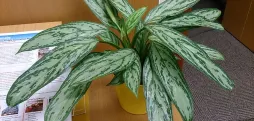
Aglaonema commutatum
Discover
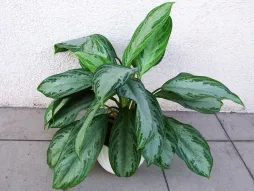
Aglaonema 'Silver Queen
Discover
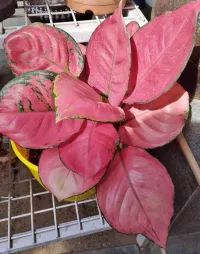
Aglaonema 'Pink Princess
Discover
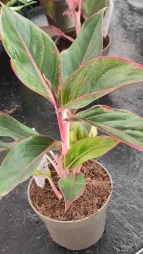
Aglaonema 'Crete
Discover













